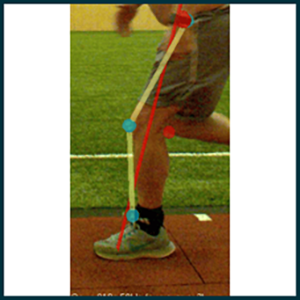Post-Traumatic Knee Injuries and Return to Sports Participation
Meniscal (cartilage) and anterior cruciate ligament injuries (ACL) are key risk factors for the future development of osteoarthritis. They are also major burdens both from a lifestyle and financial perspective. Whilst most individuals return to participating in sport, for a great deal this is not at the level that they were playing at. The research focusses on how the individuals move following these injuries and whether they have impairments when they are returning to sport and how this relates to the development of future comorbidities.

A previous study identified that elite individuals who have had an ACL injury increase the loads on their patella and that their contralateral limb (non-injured limb) is not a good comparison for the injured side and this would appear to be related to ongoing deficits in quadriceps function. Ongoing research by postgraduate students within this area has demonstrated large inconsistencies in the rehabilitation protocols currently used with wide variation in criteria used for returning to participation this may be related to the poor outcome, with ongoing work attempting to establish a consensus around optimal post-operative rehabilitation.
This has led to the development of a knee injury impairment clinic which is led by internationally renowned physiotherapist Dr Lee Herrington at the Manchester Institute of Health and Performance. The aim of the clinic and the associated research is to understand the impairments the individuals have, to target rehabilitation approaches and to further reduce the long-term burden on these individuals.
Future research will determine whether utilising such a service can improve clinical and biomechanical outcomes in individuals following knee injury compared to standard care. A large portfolio of work investigating post-traumatic knee injuries and future risk of osteoarthritis are also within this work programme.
Team
Dr Chelsea Starbuck